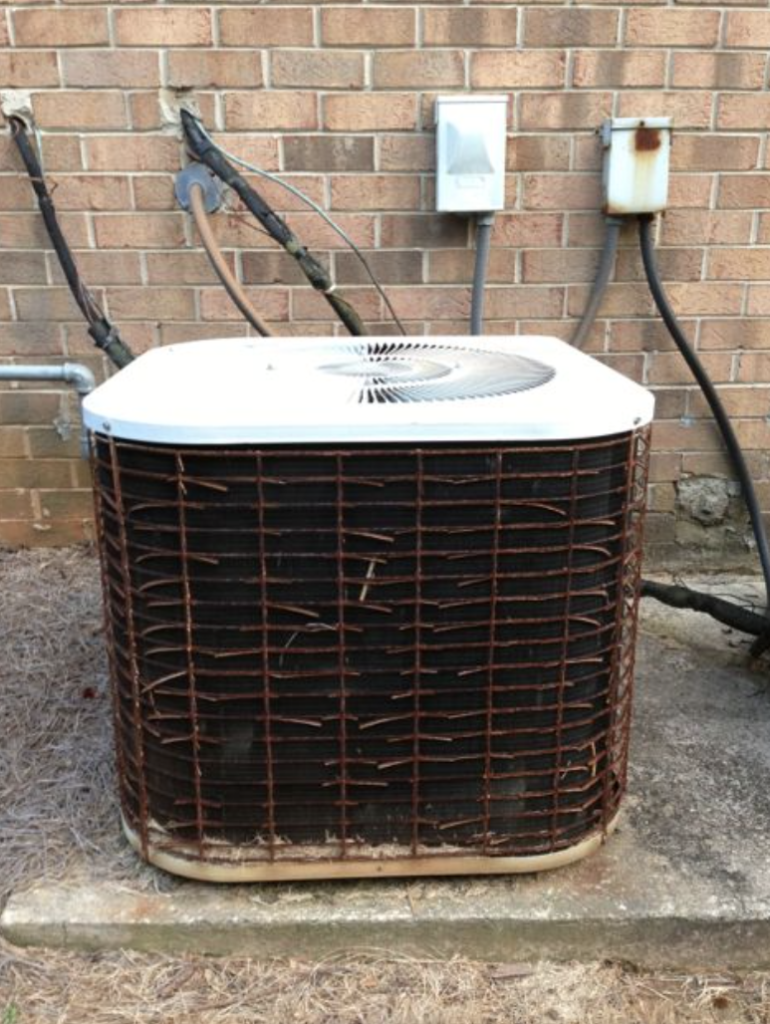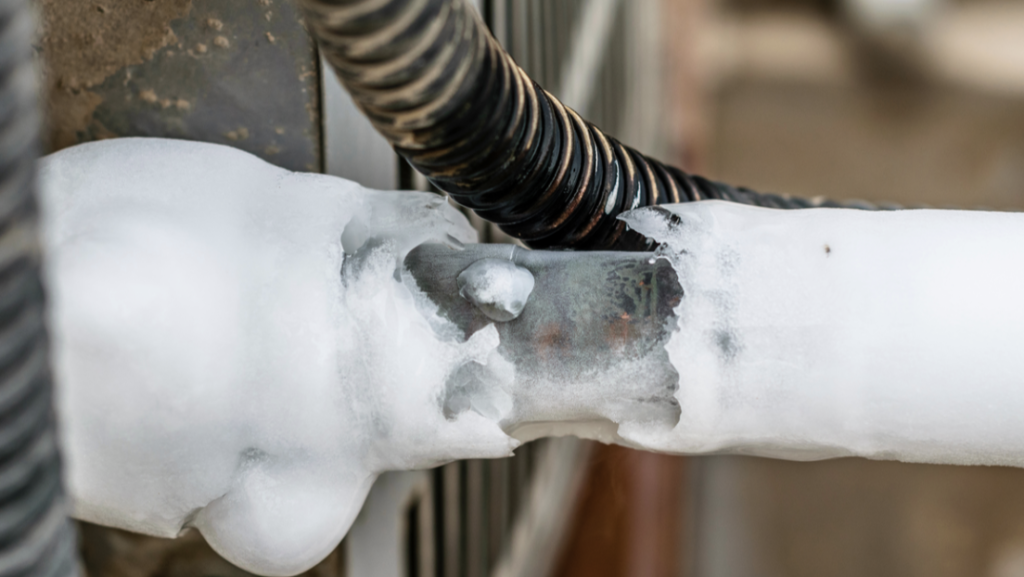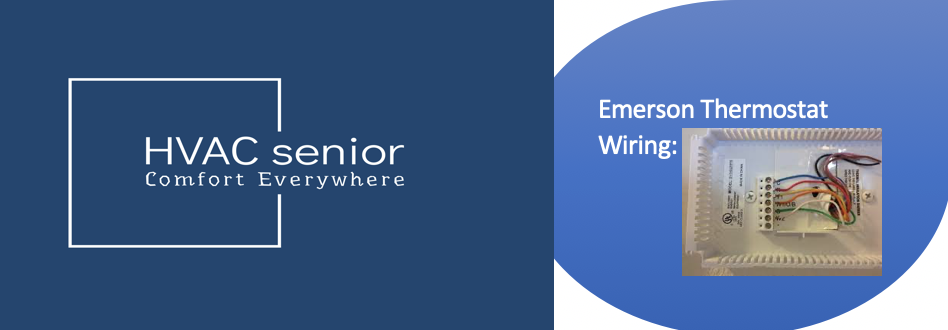Troubleshooting Your AC: Why It’s Not Cooling Below 75.
When your air conditioner is unable to lower the indoor temperature below 75 °F, several underlying issues might be at play.Most homeowners are experiencing AC not Cooling Below 75 just right now.But you are lucky to be here.
At a glance: AC not Cooling Below 75 could be as a result of thermostat issues,sizing,refrigerant leaks, dirty condenser coil, faulty compressor ,frozen evaporator coil or blocked drain line.
The primary culprit in such scenarios is often a congested air filter, which can impede airflow and hinder the air conditioner’s capacity to effectively cool your living space.
Additionally, a malfunctioning thermostat, issues with the compressor, or, in certain instances, insufficient refrigerant levels can also contribute to this cooling problem.
To gain a more comprehensive understanding of AC not Cooling Below 75, let’s explore these potential factors in greater detail.
Related Post>>>>Ac Running But Not Cooling.
Why AC not Cooling Below 75.
1.Check your thermostat.
One frequent explanation for an AC not Cooling Below 75 is an improperly set thermostat. It’s crucial to examine your thermostat settings when your AC seems to be underperforming in terms of cooling your home.
Cause:
The root cause of this issue often lies in the thermostat being configured at a temperature higher than your desired indoor comfort level. When the thermostat is set too high, it instructs the air conditioner to maintain a warmer environment, thus hindering the cooling process.
Fixes:
To address this problem, you should start by checking your thermostat’s current setting. If you find that it’s set higher than your preferred temperature, simply lower it to your desired level. This adjustment prompts the air conditioner to work harder to achieve the desired cooling effect, potentially resolving the problem.
By ensuring your thermostat is correctly adjusted, you can create a more comfortable indoor environment and help your air conditioner cool your home efficiently.
2.Check for improper sizing.

Cause:
Sometimes, the reason your air conditioner cannot reach the desired temperature is due to improper sizing.
If your AC unit is not appropriately matched to the size of your home, it may struggle to effectively cool the space. An undersized air conditioner lacks the necessary power to efficiently lower the temperature in a larger area.
Fix:
If you suspect that improper sizing is the root cause of your AC’s performance issues, it’s advisable to seek professional assistance. Contact an HVAC contractor with expertise in air conditioning systems.
They can assess your home and recommend the right-sized AC unit for your specific needs. This ensures that your air conditioner has the capacity to cool your space effectively, making it more energy-efficient and capable of achieving the desired indoor temperature.
3.Check for refrigerant leaks.
Cause:
In some instances, inadequate cooling performance from your AC unit may be attributed to low refrigerant levels, possibly due to a refrigerant leak.
Refrigerant is a crucial component that facilitates the cooling process in your air conditioning system. If there is a leak, it can impede your AC unit’s ability to function optimally.
Fix:
You can identify a potential refrigerant leak by examining your AC unit’s coils for the presence of frost or ice buildup. If you suspect a refrigerant leak, it is strongly recommended to contact a professional AC repair technician.
Attempting to address refrigerant issues without the necessary expertise can be hazardous and may lead to further damage. The technician will locate and repair the leak, as well as recharge the refrigerant to the appropriate levels.
This action ensures that your air conditioner operates efficiently and can effectively cool your home to the desired temperature.
Also read: AC Blowing 70 Degree Air.
4.Check for a dirty condenser coil.
Cause:
The condenser coil in your air conditioning system plays a crucial role in dissipating heat from the refrigerant, allowing your AC unit to cool the air effectively.
However, when this coil becomes dirty or clogged with debris, it can hinder the efficiency of your AC system.
Fix:
You have two options to address this issue. First, you can clean the condenser coil yourself by using a brush or a hose to remove dirt and debris.
Ensure the unit is turned off before attempting this, and be cautious to avoid causing damage. Alternatively, you can hire a professional HVAC technician to perform the cleaning.
Professionals have the necessary skills and equipment to safely and thoroughly clean the condenser coil.
By keeping the condenser coil clean and free of obstructions, you can help your AC unit work efficiently and cool your home to your desired temperature.
Also read: Suction Line Not Sweating
5.Check for a faulty compressor.
Cause:
The compressor is a vital component of your AC unit, and when it malfunctions, it can impede your air conditioner’s ability to cool effectively.
There are several potential causes of a faulty compressor:
- Overheating: Overheating is a common reason for a compressor to fail. When the compressor overheats, it may either shut down or operate less efficiently, leading to inadequate cooling. To prevent this, it’s essential to ensure proper ventilation around the compressor and keep the surrounding area free of debris and obstructions.
- Low Refrigerant: Inadequate refrigerant levels can also lead to a faulty compressor. As previously mentioned, refrigerant is essential for cooling the air in your home. When there is an insufficient amount of refrigerant, the compressor can overheat as it attempts to compensate for the deficit. Regularly checking for leaks and ensuring that your AC unit maintains the proper refrigerant levels is crucial to prevent this issue.
- Faulty Wiring: Faulty wiring can be a cause of compressor issues, particularly in older AC units that haven’t undergone recent updates or maintenance. If you suspect that faulty wiring may be contributing to problems with your compressor, it’s advisable to seek the expertise of a professional AC repair technician. They can inspect the wiring system, identify and rectify any issues, ensuring the proper functioning of the compressor.
Fixes:
1. Overheating:
To prevent compressor overheating, ensure there’s proper ventilation around the compressor unit. Clear any obstructions or debris from the area surrounding the compressor. Additionally, consider providing shade or shelter to shield the compressor from direct sunlight, especially during hot weather.
2. Low Refrigerant:
If you suspect low refrigerant levels, it’s essential to call a professional HVAC technician. They can inspect your AC system for leaks, repair any identified leaks, and recharge the refrigerant to the appropriate levels. Regular maintenance and refrigerant checks can help prevent this issue in the first place.
3. Faulty Wiring:
If faulty wiring is suspected as the cause of compressor problems, consult with a professional AC repair technician. They can assess the wiring system, identify any damaged or worn components, and make necessary repairs or replacements. It’s essential to ensure that the electrical connections are secure and functioning correctly to maintain the compressor’s performance.
Also read>>>>Ac Unit Freezing Up At Night.
6.Check for a frozen evaporator coil.

Cause:
The evaporator coil is a critical component of your AC unit, responsible for absorbing heat from the indoor air to facilitate cooling by the refrigerant.
However, when this coil freezes over, it obstructs the cooling process and can lead to your AC unit struggling to reach the desired temperature. Several factors can contribute to the freezing of the evaporator coil:
- Dirty Air Filter: A dirty air filter is a common culprit. It restricts the airflow and impedes the heat absorption process by the evaporator coil over time.
- Low Refrigerant: Similar to the condenser coil, low refrigerant levels can cause the evaporator coil to freeze. Inadequate refrigerant prevents efficient heat absorption from the indoor air, leading to freezing over time.
Fix:
- Dirty Air Filter:
- Fix: Regularly check and clean or replace your air filters, ideally about once a month, to maintain proper airflow. Clean filters allow the evaporator coil to operate effectively, preventing freezing and improving cooling performance.
- Low Refrigerant:
- Fix: If you suspect low refrigerant levels, engage the services of a professional HVAC technician. They can inspect your system for leaks, repair any identified leaks, and recharge the refrigerant to the correct levels. This action prevents the evaporator coil from freezing due to insufficient refrigerant, helping your AC unit reach and maintain the desired temperature more efficiently.
7.Check for a blocked drain line.
Cause:
The drain line in your AC system serves a crucial role in removing excess water from the evaporator coil, preventing it from freezing over or sustaining damage.
If the drain line becomes blocked or clogged, water can back up into the evaporator coil, causing it to freeze or become damaged.
Fix:
1. Blocked Drain Line:
Fix: You can clear a blocked drain line yourself with basic household supplies. Start by locating the drain line, often found near the indoor unit of your AC. Carefully remove the blockage using a wet/dry vacuum or a stiff brush.
Be cautious and gentle to avoid damaging the line. If you’re not comfortable doing this yourself, it’s advisable to hire a professional HVAC technician.
They have the expertise and tools to safely clear the blockage, ensuring proper drainage and preventing the evaporator coil from freezing or sustaining damage.
8.Check for airflow issues.
Cause:
Restricted airflow can be a significant factor in your AC not Cooling Below 75.
Several issues can contribute to restricted airflow, hampering your AC’s cooling capabilities:
- Dirty Air Filters: One of the most common culprits for restricted airflow is dirty air filters. When air filters become clogged with dust and dirt, they impede the flow of air through your AC unit. Regularly checking and cleaning or replacing your air filters, approximately once a month, is crucial to prevent them from becoming too dirty and causing airflow problems.
- Closed Vents: Closed vents in your home can also lead to restricted airflow. If any vents are closed, it obstructs the flow of air and hinders your AC unit’s ability to cool the space adequately. Ensure that all vents in your home are open to allow for proper and unrestricted airflow.
Fix:
- Dirty Air Filters:
Fix: Regularly inspect and clean or replace your air filters as needed, ideally on a monthly basis. Clean air filters enable better airflow through your AC system, ensuring it can cool your home effectively.
- Closed Vents:
Check all the vents in your home to ensure they are open and unobstructed. Opening closed vents helps maintain adequate airflow, allowing your AC unit to cool your space more efficiently.
Frequently Asked Questions (FAQs)
1. Why is my air conditioner struggling to cool my home below 75 degrees?
Answer: There can be various reasons for this issue. One common cause is a dirty air filter, which restricts airflow and hampers cooling. Additionally, improper thermostat settings or having an AC unit that is not properly sized for your home can also contribute to the problem.
2. What can I do if my AC’s evaporator coil keeps freezing over?
Answer: If your evaporator coil is freezing, it could be due to a dirty air filter or low refrigerant levels. Regularly cleaning or replacing air filters (about once a month) helps maintain proper airflow. It’s also important to ensure there are no refrigerant leaks and that your system has sufficient refrigerant.
3. Why does my air conditioner not cool well, and what is the role of the condenser coil?
Answer: Inadequate cooling can be caused by a dirty condenser coil, which dissipates heat. Regular maintenance, including cleaning the condenser coil, can improve AC performance. It’s also crucial to address factors like overheating, low refrigerant, and faulty wiring that can affect the compressor’s operation.
4. How do I prevent my AC’s drain line from getting blocked and causing issues?
Answer: To prevent blockages in the drain line, regular maintenance is key. Clear any blockages with a wet/dry vacuum or a stiff brush. Ensure the line remains unobstructed, so that water doesn’t back up into the evaporator coil. Professional assistance is recommended if you are uncomfortable doing this yourself.
Conclusion.
Understanding the common causes and solutions for AC not Cooling Below 75 is vital in ensuring a cool and comfortable indoor environment.
Factors such as dirty air filters, blocked drain lines, and insufficient refrigerant can impede an AC unit’s performance, making it struggle to reach the desired temperature.
Regular maintenance, including cleaning filters, clearing drain lines, and addressing refrigerant levels, is essential for optimal functioning.
Furthermore, issues related to the compressor, condenser coil, and evaporator coil must be promptly identified and resolved by professionals when needed.
By tackling these challenges effectively, you can maximize your air conditioner’s efficiency and enjoy the refreshing coolness you desire in your home.









